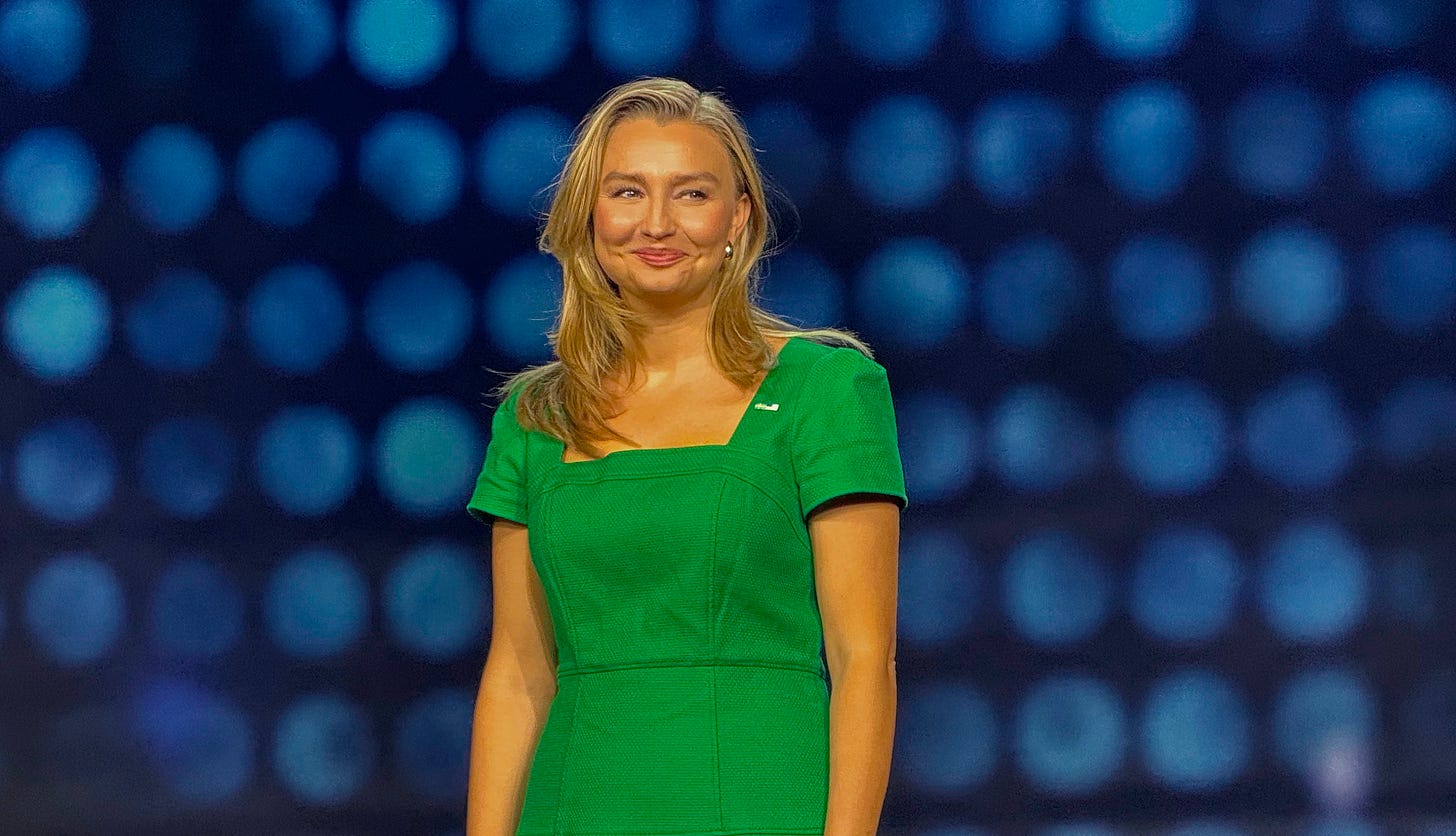Today, Swedish Minister Ebba Busch is in Silicon Valley, and space technology is on her agenda. “We need to stop seeing space as just a research project—it is also something we can capitalize on,” she says in an interview with SVNB.
After two days at CES 2025 in Las Vegas, the Minister for Energy, Business, and Industry, Ebba Busch, continues her U.S. tour, which focuses on artificial intelligence, energy, and space innovation.
“The aim is to gain insights into cutting-edge developments and explore opportunities for Swedish companies to strengthen their global competitiveness,” Busch explains.
During her stay in Silicon Valley, Busch will visit, among others, Google, Meta, OpenAI—and the satellite startup Muon Space.
Besides the usual foreign politicians' company visits in Silicon Valley, you are meeting with the Silicon startup Muon Space; how come?
“Sweden must stop seeing space primarily as just a research project. It’s also something—it’s knowledge and a platform to make money from. I’d like to see how Sweden can improve at capitalizing on the platform that Esrange represents, as well as the collaboration between research and companies,” she says.
Busch adds:
“By collaborating with innovative companies like Muon Space, we aim to integrate advanced satellite technologies into Sweden's space initiatives, enhancing our capabilities in Earth observation and climate monitoring.”
Muon Space, founded in 2021, specializes in designing, building, and operating satellite constellations that provide Earth intelligence data. The company aims to deliver critical information for climate monitoring and national security. Its headquarters are in Mountain View, California.
Busch sees space as a sector where Sweden has the potential to excel.
“We have the Esrange Space Center, but we need to do more—turning research into economic growth by fostering collaboration between academia and industry,” she says.
Reflecting on her broader responsibilities as a minister, Busch notes the importance of connecting her government’s efforts.
“I try to bring insights back to my colleagues and work across ministries where possible,” she says. However, her schedule has also been shaped by current events.
“With Jimmy Carter’s funeral taking place, we had to adjust plans. Otherwise, we would have included a visit to NASA,” she explains.
Busch also emphasized Sweden’s potential as a leader in space technology in her speech at CES 2025 on Wednesday:
“Sweden is a space nation, too. If you want to launch rockets in the EU, you must go to Esrange, in northern Sweden. And I gladly welcome you myself,” she told the audience.
Busch highlights Sweden’s longstanding tradition of innovation—from producing fighter jets and submarines to green steel and fossil-free energy systems—which positions the country as a global leader in integrating complex technologies.
In the interview, Busch also stresses the urgency of establishing a robust AI strategy.
“AI must be a top priority in 2025. We can’t afford to wait for perfect frameworks,” she says.
Busch sees AI as a key tool for addressing energy challenges, particularly in stabilizing Sweden’s electricity grid.
“AI can help balance energy systems and unlock efficiency gains, making it an essential part of our strategy.”
The U.S. trip is part of a broader effort to position Sweden as a global leader in innovation.
“The possibilities are immense, but we must act strategically to remain at the forefront,” Busch concludes.




